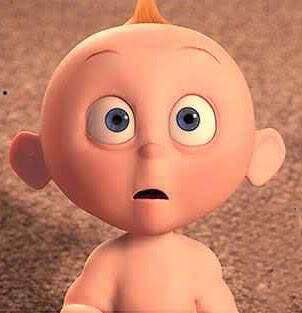I recognize the lengthiness of this post. Thank you for reading whatever portion of it you read. Thank you a hillion jillion times for any comment that you leave. Thank you ten to the twenty-fourth power if you decide to engage with this post.
Recently in a group meeting of several Christian women of which I was a part, the leader said, "You're either in the game, or you're not." This bold statement was in the context of studying the book, "Spiritual Slavery to Spiritual Sonship" by Jack Frost (1953-2007). Mr. Frost had an upbringing that left him wounded in ways that made it difficult for him to trust male authority figures in his life. Since he was first a ship mate and captain, and then a pastor within the Christian Church, his inability to submit to male authority figures had significant consequences for him.
Although the women in my group, to a one, thought this book was awesome, I was struck over and over by the black and white thinking put forth in the book (which = not awesome).
- "We either live our life as if we have a home and a loving Father's arms to run to when the world is trying to give us what they think we deserve, or we live our life as if we don't have a home." (p 35)
- "We will be subject either to the Father of Creation's mission or to the mission of the father of lies, the accuser of the brethren. These are the only possibilities." (p. 54)
- "We either have a spirit of sonship or an orphan spirit; there is no middle ground." (p. 82)
- And an entire Appendix A "Contrasting the Orphan Heart with the Heart of Sonship." (p. 213-214)
There is a deep validity to the fact that many people, adults AND children, do not have a sense of being loved, of being complete, of being safe. They are embodying what he talks about as the orphan mindset. I also see a contrast between those who feel unmoored, and those who are centered and know they are valuable.
But I also see a third group, those who see themselves as neither an orphan or a child, but as empowered adults. Empowered adults can live their lives confident that life offers a variety of paths, a number of opportunities to learn any particular lesson, and a freedom to act that does not require any particular level of expertise.
Paul says in I Corinthians 13:11 "When I was a child, I spoke like a child, I thought like a child, I reasoned like a child. When I became a man, I gave up childish ways." To me, childhood is a developmental phase. Understanding the value of myself is something that comes as part of developing in life. In my own development, I went almost directly from orphan thinking to adult thinking, and had a very brief beloved child phase.
Let me think about this:
A child ...
- depends on her parents for all manner of health; physical, emotional, social, spiritual, mental.
- is great at perceiving, but ill-equipped for interpreting.
- has little life experience to rely on for decision-making purposes.
- usually has some age-appropriate misunderstandings about who is responsible for what in relationships.
- gets along best if she does what she is told.
- is generally discouraged from expressing strong emotions.
- is at the mercy of others, who may or may not have her best interests at heart.
An adult ...
- knows that she is responsible for her own physical, emotional, social, spiritual, and mental health.
- has the skills to interpret what she perceives, and to recognize that all perceptions are not factual.
- has gained life experience which can be significantly helpful in decision-making about perceptions.
- has the freedom to decide to what degree she is going to "get along" by "doing what she is told."
- realizes that the expression of strong emotions can sometimes be of service to her, and other times, not so much.
- has the opportunity to experience great depth of satisfaction in relationships as she discovers who is responsible for what.
- has the mental capacity to understand the concept of choosing her response to any given situation.
Certainly, a child who knows herself to be deeply loved and valuable is going to feel more secure, although still in a developmental phase where she will have some limitations in understanding and experience. And ANYONE who knows themselves to be lovable and capable and valuable has a center of strength, child or adult. The limitation of Mr. Frost's dichotomous philosophy shows up with his definition of us as EITHER having an orphan mindset, OR believing ourselves to be deeply loved CHILDREN. For surely, there is a continuum between those, as well as times when we are more deeply embodying one or the other.
How do YOU navigate the tension between being told you are a CHILD (of God), but knowing yourself to be an ADULT?
Mr. Frost's clearly states that the child's station in life is the one we have, and that we can either do it well (sonship) or poorly (orphan). His main point is that God is a Loving Father who will take perfect care of us as children. This belief makes sense, but the working out of it does not necessarily support the belief that it is best for us as individuals, spouses, parents, family members, community members, and citizens of a variety of societies, to remain as children.
I am embracing my adulthood! The question remains for me whether Christianity supports us being adults.
- When I make a decision, my Christian friends say I must have permission from God to take one step or another, but as an adult, I know that I am able to make a decision about which step to take. ( Who decides what the step will be?)
- When I encounter a hardship in my life, my Christian friends suggest that God has a plan which encompasses every single detail of my life. As an adult, I recognize my own ability to embrace the hardship as something that could actually just be the best possible thing that could happen to me, regardless of what it looks like at first. (Who decides the rightness of an event?)
- When I am in relationship with someone who is struggling, my Christian friends suggest that praying is the most powerful thing I can do. As an adult, I see that there are many things I can say and do that actually empower the other person, the chief of which is recognizing that that person is the best judge of their own life and they know best which choice will serve them. (Who has the ability to effect change?)
- When I feel frustrated by someone's "failure" or am disappointed by their actions, my Christian friends tell me I should "give it to God," "lay it at the feet of Jesus," "submit to God's plan." As an adult, I have the capacity and joy of accepting the other person right where they are, being honest about the effect of their actions or inactions for me, and recognizing that I am not dependent on anyone else for my general state. (Who is responsible for my emotional state?)
- When I see a black and white issue, it's usually my Christian friends who are presenting it, and they feel most comfortable when the issue IS black and white. As an adult, I see more and more how many issues are actually both/and. That is, some people see it as black and white, AND there is plenty of evidence to support a third, or a fourth, or many more, position. (Who gets to decide what is true?)
Yes, I see myself as an adult. I see childlike characteristics in myself as well -- joyousness, playfulness, curiosity. All of us are a mix of adult and child. I'm simply exploring my own understandings of my adulthood and my childhood and offering these explorations as food for thought. Let me know if you decide to chew on any of these thoughts.



























